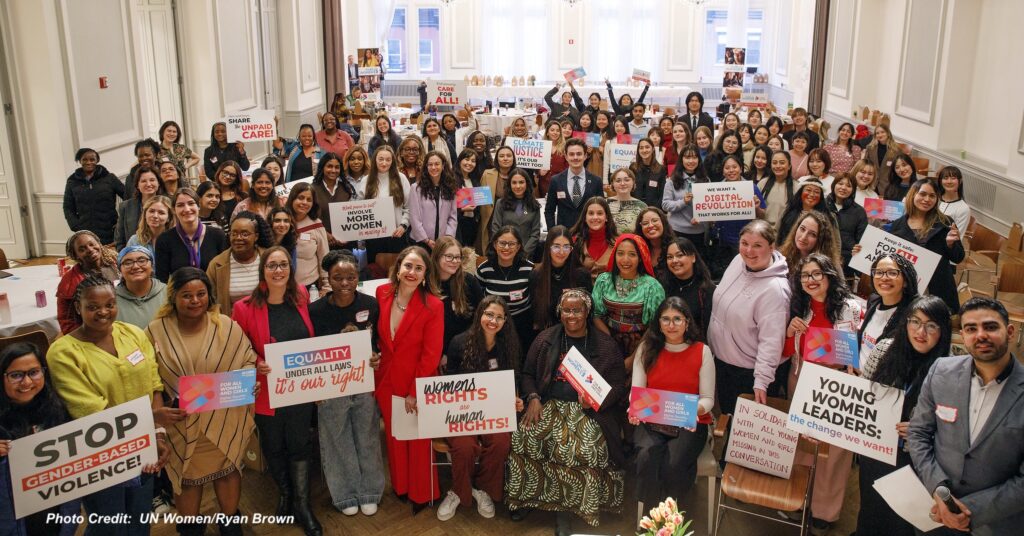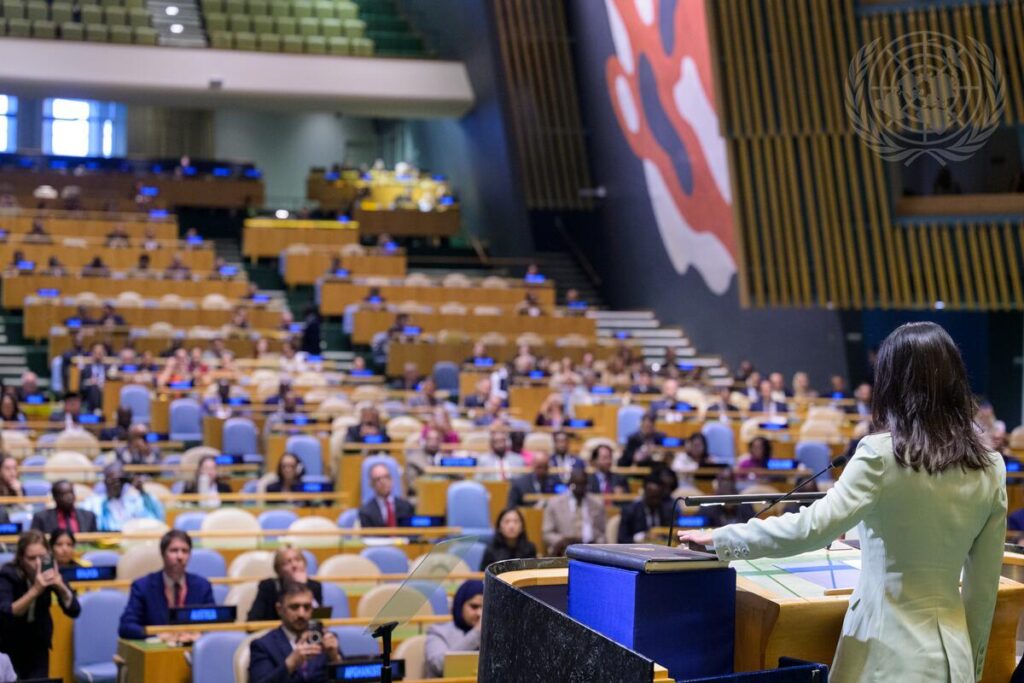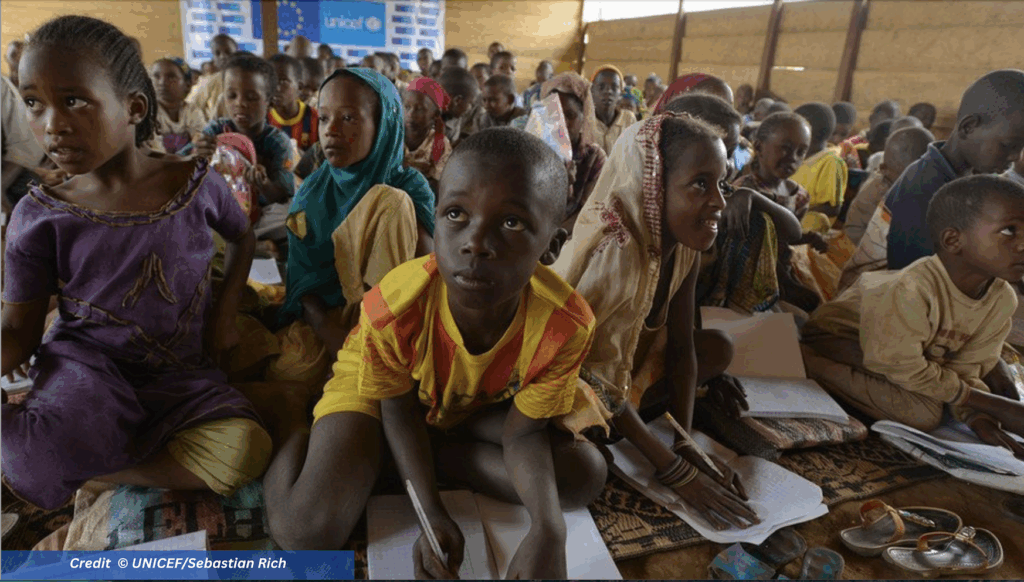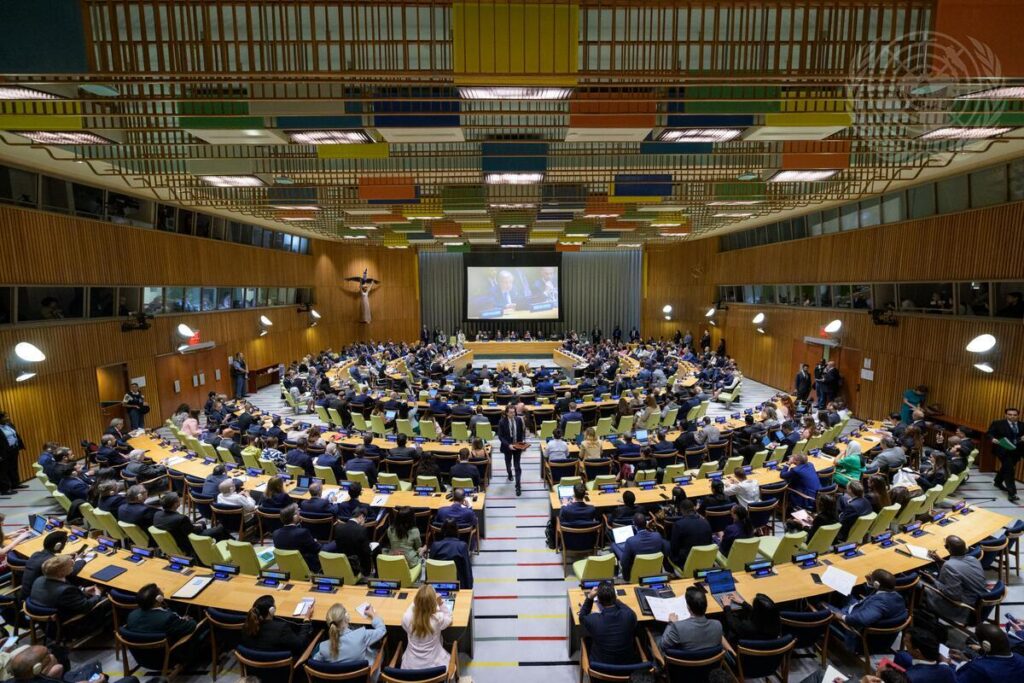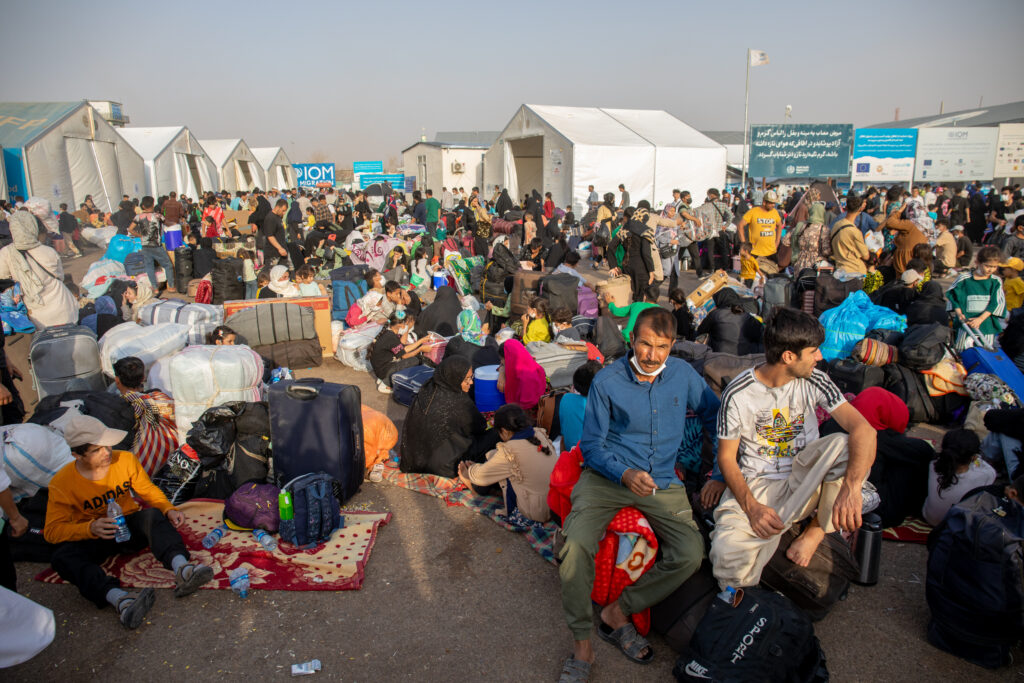Closing the Gender Digital Divide Could Boost Global GDP by $1.5 Trillion and Lift 30 Million Women from Poverty
Note: UN Women exists to advance women’s rights, gender equality and the empowerment of all women and girls. As the lead UN entity on gender equality, we shift laws, institutions, social behaviors and services to close the gender gap and build an equal world for all women and girls. We keep the rights of women and girls at the center of global progress – always, everywhere. Because gender equality is not just what we do. It is who we are. Following is a press release.
New York, 15 September 2025 – The newly released Gender Snapshot 2025 report by UN Women and the UN Department of Economic and Social Affairs (UN DESA) shows that the world is at a crossroads. With investments, gender equality is within reach. Girls are now more likely to complete school than ever before, and maternal mortality declined by nearly 40 per cent between 2000 and 2023. Rates of intimate partner violence are 2.5 times lower in countries with comprehensive measures on violence (i.e. laws, policies, institutional mechanisms, research and data, prevention, services, and budgets) compared to those with weak protections. Women’s leadership in climate talks has doubled. In the past five years, 99 new or reformed laws tore down discrimination.
“Where gender equality has been prioritized, it has propelled societies and economies forward,” said Sima Bahous, Executive Director of UN Women. “Targeted investments in gender equality have the power to transform societies and economies. Just closing the gender digital divide alone could benefit 343.5 million women and girls worldwide, lift 30 million out of poverty by 2050, and generate an estimated $1.5 trillion boost to global GDP by 2030.”
The report is available at this link
At the same time, an unprecedented backlash on women’s rights, shrinking civic space, and growing defunding of gender equality initiatives is threatening hard-won gains. If current trends continue, the world will reach 2030 with 351 million women and girls still living in extreme poverty. Conflict is getting deadlier for women and girls. Today, 676 million women and girls live within reach of deadly conflict – the highest recorded since the 1990s. 64 million more female adults were moderately or severely food insecure than male adults in 2024. The data shows that the world is retreating on gender equality, but it also tells us that with investment and political will, this trend can be reversed.
“Only five years remain to achieve the 2030 Agenda for Sustainable Development, with targets aimed at making gender equality a reality for all. The Gender Snapshot 2025 shows that the costs of failure are immense but so are the gains from gender equality. Accelerated action and interventions focused on care, education, the green economy, labour markets and social protection could reduce the number of women and girls in extreme poverty by 110 million by 2050, unlocking an estimated $342 trillion in cumulative economic returns,” said Li Junhua, United Nations Under-Secretary-General for Economic and Social Affairs.
The Gender Snapshot report is the world’s leading source of data on gender equality and the 2030 Sustainable Development Agenda. Drawing from more than 100 data sources, it tracks progress for women and girls across all 17 Sustainable Development Goals (SDGs). The 2025 edition shows that with five years left to achieve the SDGs, the world is currently on the trajectory to miss every single indicator under SDG5, the gender equality goal.
“As world leaders gather in New York for UNGA80, and to commemorate 30 years after the Beijing Declaration and Platform for Action on 22 September 2025, the Beijing+30 Action Agenda provides a clear path forward towards rights, equality and empowerment for all women and girls. It outlines six priority areas for accelerated implementation: freedom from poverty, zero violence, equal power and leadership, climate justice, peace and security, and full participation in the digital revolution. Cutting across the six is amplifying the voices of young women and girls. I encourage all leaders to make commitments and investments towards this and to choose a world where women’s rights are delivered at scale, and the returns are shared by all,” concluded UN Women Executive Director Bahous.
About the Gender Snapshot Report – The Gender Snapshot is the world’s leading source of data on gender equality and the 2030 Agenda for Sustainable Development. Drawing from more than 100 data sources, it tracks progress for women and girls across all 17 Sustainable Development Goals. With just five years left to deliver on the 2030 Agenda, and three decades since the adoption of the Beijing Platform for Action, the report offers both a stark warning and a clear way forward. Anchoring the Beijing+30 Action Agenda, it identifies six priority areas where urgent, accelerated action is needed to achieve gender equality for all women and girls by 2030.
About the UN Department of Economic and Social Affairs (UN DESA) – Rooted in the United Nations Charter and guided by the transformative 2030 Agenda for Sustainable Development, UN DESA upholds the development pillar of the United Nations. The Department brings the global community together, working towards common solutions to the world’s most pressing problems. UN DESA helps countries translate their global commitments into national action in the economic, social and environmental spheres.
United Nations journalists – United Nations journalists – United Nations journalists
United Nations News – United Nations News – UN Correspondents Association – UNCA Awards

